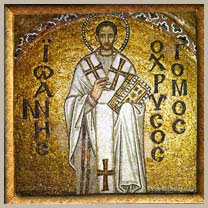Why a web page may look different on different computers. This article that was written by Walt and is on the Pallasart site.

Chapter XIX
Sad Christmas of 1917
Once again Christmas was coming round. A modest little Christmas-tree, placed in the rotunda, contrasted strangely with the magnificent one of the previous year. The presents also were very modest, for the Grand Duke's means had bee.n substantially diminished. Nevertheless, we did not ",-ish to deprive the children of this family joy. Alas! this was to be the last Christmas-tree for my husband and my son.
That evening we expected the whole family. Nobody could come, for the trains were few and working irregularly. One had to wait for hours and to have resort to all kinds of strate gems to get into a compartment. That day the trains were not working at all, so the five of us drew close together round this little tree, whose radiance lit up our sombre melancholy and whose warmth kindled our heavy hearts. . .
Four days later, in honour of Vladimir's twenty-first birthday, his coming of age, we lit up the tree again and put back the presents on it. The little girls and he had a charming surprise for us, a piece of verse of his composition, entitled " l'Assiette de Delft." Irene and Nathalie, coached by my son, played it to perfection. Our friend, Count Armand de Saint-Sauveur, had been coming to see us frequently, especially since our misfortune. He dined with us that evening and shared our enthusiasm for the melodious rhymes which delighted our ears. . .. Thus, from time to time, we had our days of respite, like oases in the terrible desert in which our feet were sinking at every step.
My son Alexander, marked down by the Bolshevists on account of his ardent and militant devotion to the Emperor Nicholas II, had to take sudden flight, via Finland, for Sweden during these last days of December. The Bolshevists had discovered his English uniform subterfuge and also an anti-Bolshevist plot in which he had taken a hand.
Then came the night of New Year's Eve when, in accordance with Russian usage, we held festival at midnight and exchanged good wishes. A modest supper then followed, to which my husband and I, and Vladimir and Colonel Petrokow sat down. . " I linger over these recollections, these last gleams of happiness - for 1918 was to be a dreadful calvary.
During the first days of January we realised that, despite all our precautions, the naphtha required for our heating arrangements was running short. It became necessary to try and install ourselves somewhere else, where one would only have to bum wood or coal, of which we had some supply, these two forms of fuel having reached at this date fabulous prices. The Grand Duke Boris, a nephew of my husband, having gone to the Caucasus in August, we thought of his pretty little English cottage which stood a little distance away from the Tsarskoe road, on the road to Pavlovsk. The Grand Duke, not knowing the address of Boris Vladimirovitch, sent a telegram to the Caucasus to his sister-in-law, the Grand Duchess Vladimir, asking her to give him permission to install himself in her son's house. She replied affirmatively, adding that she also placed her own house at his disposal. The poor Grand Duchess did not know that her palace had been sacked and that at this moment the Soviet were preparing to establish themselves in it.
On January 9th we all moved to a small house belonging to the Grand Duke Boris; the hot-water pipes of his big house having frozen, it took fifteen days to thaw them, warm them again and repair them. We left in our own house only the two concierges and some servants. Our staff was substantially reduced. Of our sixty-four servants before the war there remained only forty-eight at the time of the first Revolution, and twenty-two at the time of the Bolshevist invasion, and every week the number dwindled perceptibly. In July, 1918, there remained only three, and in December only one.
This house of the Grand Duke Boris was charming and situated in the middle of a large garden. You went into a hall, which gave access to all the rooms on the ground floor. A staircase, which led up to a circular balcony, enabled one to see from the first floor everything that happened in the hall. Only Vladimir remained on in the small house, where he had his piano, his books. his type-writing machine, and his paint brushes, and where the dear child lived his last days of happiness.
On January 13th/26th a new sorrow came to me. Of one sister and four brothers whom I had had and of whom I was the youngest, there were living only my sister and the last of my brothers, named Serge, All his life this brother had struggled against the will of his parents, who forbade him to go in for acting, although his talent was very real. Our parents had old-fashioned ideas on the subject. It seemed to them that to have a son an actor was humiliating and degrading. As far as my memories go back I can recall this struggle. My brother, as soon as his military service was over, entered Government service, and in every town his work took him so he founded a company of theatrical amateurs and played the chief rOle. His success was always very great, especially in the roles of grands seigneurs. He was so afraid of his parents that, even for these amateur performances, he had assumed the pseudonym of Valois. However, after the death of my father, he overcame my mother's opposition and went on the stage, joining first a private theatre, then, in 1918, going to the Imperial Alexander Theatre in Petrograd. All Russians who may read this melancholy narrative will recall this remarkable actor who won all his successes by the delicacy of his playing. A little before the Revolution and in spite of the objections of his colleagues who adored him, my brother left the Alexander Theatre and joined the company which was playing at the Aquarium 011 the other side of the Neva. On the evening of January 10th/23rd he was returning in a fiacre from the theatre with a suit-case containing his costume, etc. He passed by the canal of la Fontanka on his way to his abode in the Rue Simeonievskayo.
The house was occupied by the French Military Mission, and from behind a heap of timber, laid alongside the canal, two soldier-brigands emerged. One stopped the horse by taking hold of the bridle, while the other fired his revolver at short range at my brother, who fell as though lifeless in the snow. At the sound of the shot several officers of the French Mission rushed to the rescue and picked up my brother, who was still breathing. The bandits had fled and the driver stood weeping and moaning. The French officers, seeing that my brother was dying, took him to the Hopital Marie of Prince Oldenburg. Thanks to his robust constitution he continued to live for three days but without regaining consciousness. I went to see him every day, and was able to take note of the affection borne him by his theatrical colleagues -they all wept, coming from his room. On the day of his funeral the bandages covering his head were removed-the sight was awful: the brain and great clots of blood stood out from the skull. He was buried in the Smolensk cemetery, alongside two other brothers of mine, I went to the funeral with Vladimir, Marianne, my sister and my two nieces. Saint-Sauveur had lent me his auto-mobile. The burial was solemn and moving. There were a number of deputations of actors, all with beautiful wreaths, and with such inscriptions as: "To our dear and good comrade," "To the actor whose goodness equalled his talent," etc. One wreath bore the words: "To the victim of the Black Night."\Everyone realised that the allusion was to Bolshevism rather than to the assassins.
In August, 1919, six months after my departure from Russia, my poor dear mother went to take her place side by side with her three sons. My sorrows, the sorrows of her youngest daughter, her favourite, "her little one," as she continued to call me in spite of my mature age, had killed her. . . .





